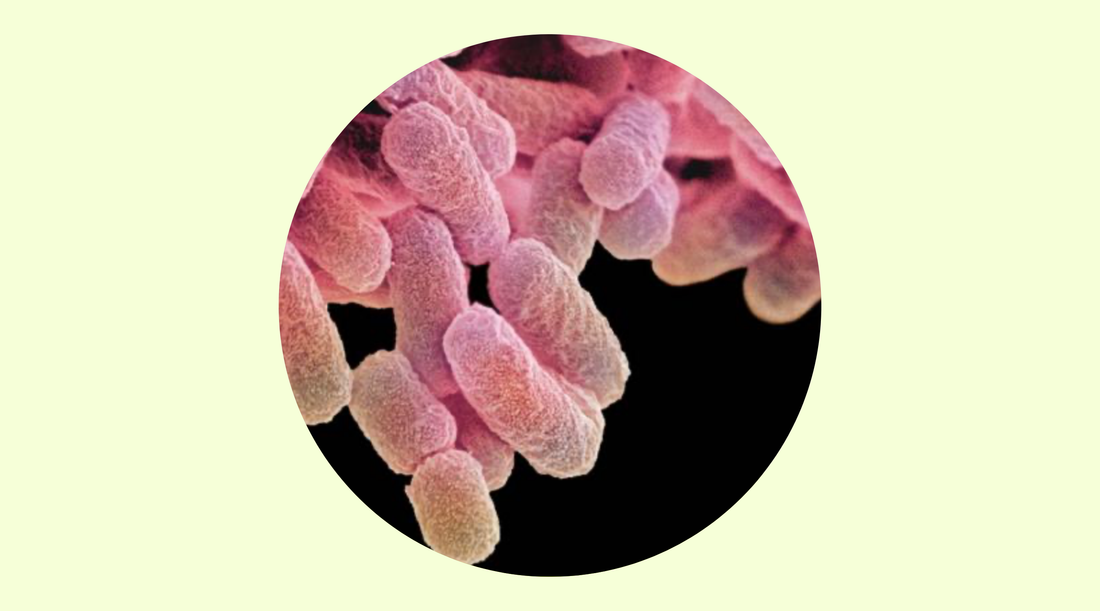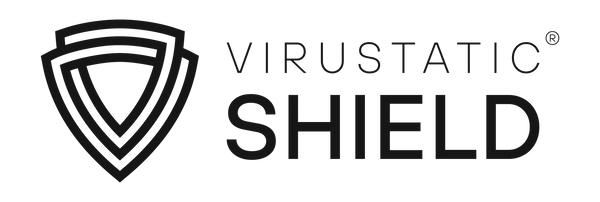
E. Coli & Colon Cancer — Could Lactoferrin Help Protect Us?
Share
A groundbreaking new study published in Nature (April 2025) has identified a mutational fingerprint left behind by colibactin, a toxin produced by certain E. coli strains — providing direct molecular evidence of how gut bacteria may trigger colorectal cancer, particularly in people under 50 [1].
This raises big questions about how bacteria we encounter as children might quietly set the stage for disease later in life. It also spotlights new ways we might protect ourselves — including through the gut-boosting, bacteria-fighting properties of lactoferrin.
Let’s break down the findings and look at what the science says about how lactoferrin could help.
The Research: E. coli Toxin Leaves a Genetic Fingerprint in Tumours
In the Nature study, scientists sequenced the tumours of nearly 1,000 people with colorectal cancer. They found that people diagnosed under the age of 50 were over three times more likely to carry specific DNA mutations linked to colibactin, a toxin made by a certain kind of E. coli [1].
This type of E. coli can live in the gut for years — and the research suggests that exposure to it in childhood may cause damage that leads to cancer decades later.
That’s a game-changing insight. It’s no longer just genetics or diet that matter — your gut bacteria in childhood might also play a hidden role in your future health.
What Is Lactoferrin and Why Does It Matter?
Lactoferrin is a natural protein found in milk (including human breast milk), tears, and saliva. It’s part of your body’s first line of defence — with powerful anti-bacterial, anti-inflammatory, and immune-supporting effects.
But what makes it especially interesting right now is how it interacts with E. coli and the gut.
Here’s How Lactoferrin May Help: Natural Defence Against E.Coli - and More.
Lactoferrin shows remarkable promise in protecting against the microbial and inflammatory triggers associated with colorectal cancer. Here's how:
⤷ It Fights the Bad Bacteria
Lactoferrin is known to suppress the growth of harmful bacteria, including E. coli, by stealing the iron they need to grow — and by damaging their membranes directly [2].
⤷ It Strengthens the Gut Barrier
This is important. Lactoferrin helps keep the lining of your gut healthy and intact, making it harder for toxins like colibactin to cross into your bloodstream or reach the cells that line your colon [3].
⤷ It Helps Good Bacteria Thrive
Lactoferrin has been shown to support beneficial gut bacteria, helping create a microbiome that’s more balanced and resilient [4].
⤷ It Calms Inflammation
Chronic inflammation plays a big role in cancer risk. Lactoferrin naturally reduces gut inflammation and helps regulate the immune system [5].
Lactoferrin and Colorectal Cancer: Evidence Beyond Prevention
In addition to preventing bacterial triggers, lactoferrin shows direct anticancer activity in colon cancer models:
⤷ Anti-Tumour Effects
Lactoferrin has been shown to inhibit colon tumour growth in both animal models and in vitro studies. It induces apoptosis (programmed cell death) in cancer cells and reduces angiogenesis (tumour blood supply formation) [6].
⤷ Enhancing Chemotherapy Outcomes
A clinical study in colorectal cancer patients receiving chemotherapy found that daily supplementation with 250 mg of bovine lactoferrin improved immune markers and reduced treatment-related side effects, suggesting it may enhance overall treatment tolerance and efficacy [7].
⤷ Modulating Key Cancer Pathways
Lactoferrin suppresses cancer-related molecular pathways, including PI3K/Akt and β-catenin, both of which are implicated in colon carcinogenesis [8]. It also reduces oxidative stress, a key driver of mutation and cancer progression.
Why Choose Enteric-Coated Lactoferrin?
Most lactoferrin is broken down in the stomach before it reaches the intestines. That’s why IMMUNE SHIELD uses enteric-coated capsules — to protect the lactoferrin as it passes through the stomach and ensure targeted delivery to the lower gastrointestinal tract, where it can interact with the gut epithelium and gut microbiome.
Conclusion: A Dual-Action Ally for Colon Health
The evidence is clear: early-life exposure to colibactin-producing E. coli can initiate mutations that drive colorectal cancer.
The idea that something as common as E. coli could quietly raise cancer risk is unsettling. But it also opens the door to natural, science-backed strategies that may help reduce that risk.
Lactoferrin offers a unique combination of gut support, immune defence, and potential anti-cancer properties — all from a protein your body already knows and trusts. Whether you're focused on prevention, gut health, or immune resilience, enteric-coated lactoferrin, like that found in IMMUNE SHIELD, offers a powerful, natural solution – grounded in cutting edge science.
References
1. Pleguezuelos-Manzano, C., et al. (2025). Colibactin-associated mutational signature marks early-onset colorectal cancer. Nature. https://doi.org/10.1038/s41586-025-09025-8
2. Cutone, A., et al. (2020). Antimicrobial and anti-biofilm activity of lactoferrin against Escherichia coli. Biometals, 33(3), 331–345.
3. Kawakami, H., et al. (2015). Bovine lactoferrin inhibits intestinal barrier impairment and inflammation in colitis models. Journal of Functional Foods, 14, 525–533.
4. Superti, F. (2020). Lactoferrin from bovine milk: A protective companion for life. Nutrients, 12(10), 2562.
5. Liao, Y., et al. (2022). Anti-inflammatory effects of lactoferrin in colitis models: Regulation of cytokines and NF-κB pathway. Nutrients, 14(6), 1213. https://doi.org/10.3390/nu14061213
6. Zimecki, M., et al. (2005). Lactoferrin inhibits the development of chemically-induced colon cancer in rats. International Journal of Cancer, 113(6), 723–730. https://doi.org/10.1002/ijc.20652
7. Machnicki, M., et al. (2016). Supplementation with bovine lactoferrin improves immune parameters in colorectal cancer patients during chemotherapy: A randomized controlled trial. Medical Oncology, 33(12), 142. https://doi.org/10.1007/s12032-016-0844-8
8. Zhang, Y., et al. (2023). Lactoferrin suppresses colon cancer development under hyperglycemic conditions via regulation of the PI3K/AKT/β-catenin signaling pathway. Journal of Translational Medicine, 21(1), 234. https://doi.org/10.1186/s12967-023-03983-1
